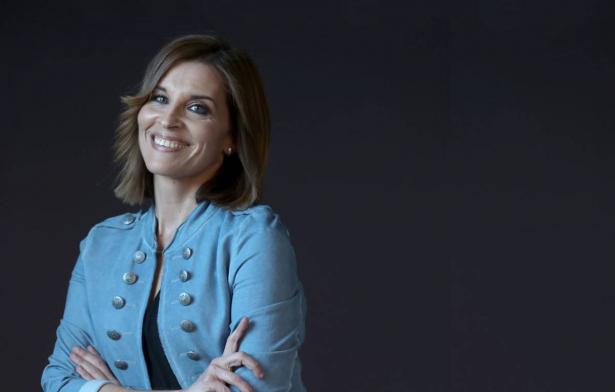I never felt such thing called maternal instinct. Such thing that, according to its defenders, impels women —nothing is known regarding men— to procreate since the beginning of time to satisfy an irrepressible desire to conceive, gestate and breeding their offspring, transcend their own existence, ensure the survival of the species. I do not mean that such a push do not exist. It is just that for myself, I have never had either the good or bad fortune of feeling it. I did not feel it, neither when I was younger nor now that I am in my fifties. Even so, maybe for this very reason and at the due time, when I had just turned thirty, not a very inexperienced age for what was usual in the nineties of the last century, I had children.

Two girls to be specific, with four year’s difference. The first one, I don’t know, because it was time, because my husband at the time wished to have offspring and I do not entirely disagree about the idea, because everyone around me did it, I thought yes, why not?, as so many women before and after me thought, I suppose. The second one, because having just a child was not enough, to see if we had a boy and made the couple. Since, how could we leave our elder without a little sibling to play with? Yes, why not? For all these reasons I was a mother. For everything and for nothing. As so many women before and after me were, I suppose.
Nothing, or almost nothing was like they had told me. But quite soon I learnt that complaints were not welcomed by my interlocutors, particularly by my congeners.
The point is that I had them, and that 20 years later of that decision by omission — as I used contraceptive pills, the action essentially consisted in stopping having them and the pregnancy was almost immediate — the experience since then has been, is, ambivalent. Since the first minute of the first zygote, the sweeten account of feminine magazines clashed with a reality, my reality, much more mundane. The condition of absolute happiness depicted by pregnant celebrities was at the odds with my sensation of carrying an alien inside. The joy and tenderness I feel at times alternated with the sensation of having wasted my life as an adult and independent woman. Nothing, or almost nothing, was like they had told me. But quite soon, I learnt that complaints were not welcomed by my interlocutors, particularly by my congeners. And since I begged the nurse to take my newborn elder daughter to the cot for I could rest for some hours, exhausted as I was after a labour without sedatives, since then the epidural shot was not provided by public health service, and I felt on me the reproving look of my roommate, who did not conceive that her baby was removed from her bosom for even a second, I knew I was going to be an odd mother. No better or worse than others, I hope. But doubtlessly different.

I told my experience. Privately and publicly. Privately, to my friends, recent mothers as me who were astonished when I told them, for instance, that I preferred spending more time with my husband than with my newborn daughters. Publicly in some of my reports as a journalist. Particularly a report that I published with the same title of this article fifteen years ago now, in which I had serious troubles to find mothers who openly recognised that having children, perhaps had not been the best thing ever happened to them. Now, the new mothers have no so many qualms about admitting that some aspects of motherhood are difficult and grievous. There is even a club called Malasmadres (Badmothers) where they share troubles, complaints, claims, advice and even meet to have cocktails without the baby on their backs. I already published this black on white fifteen years ago, but perhaps then was too early. The social climate prone to admit such a heresy did not exist yet. But it seems that is never too late to call things by their proper names. Starting by their first letter.
There are three M which condition the life of every woman from the beginning of time: menarche, motherhood and menopause
There are three M which condition the life of every woman from the beginning of time: menarche, motherhood and menopause. All three have to do with the only but huge power with which womankind has been endowed by nature. That power which any social, political or scientific revolution has managed to snatch from them. But neither release them from it. The power of conceiving, gestating and giving birth to children. Menarche and menopause, the beginning and the end of the finite period when this is theoretically possible, are such inexorable as the fact that we all are born and die one day. One day, your first period arrives and another day it disappears forever from your calendar. Otherwise, motherhood is not unavoidable but a voluntary action. Or it should be at least. Here is where we have the conflict. Because women can be mothers, but do not have to be it mandatorily. Some women want but they cannot. Others can but they do not want. And they all are equally feminine. The great news, yet at this point, would be that each one could choose to be a mother or not without asking for permission or apologizing or giving explanations. Not even to herself. And, on this matter, we still are in a very early stage.

Madre e hija en la película «Amazona»
Blissfully separated sexuality from reproduction with the widening of the use of contraceptives in the sixties of the XX century, at least in the first-world, there still remain many goals to achieve once the first decade of the XXI century has passed. The first and basic one, we should admit it, is a personal gain. Science gave us the key of motherhood, true. However, in spite of all the hindrance which colludes outside to make the work harder —precarious jobs, paltry wages, armoured glass ceilings, impossible schedules, unequal division of responsibilities and upbringing tasks between men and women — the ultimate decision of opening or not that door is, or should be, personal and non-transferable. And, of course, it is not easy.
Because women can be mothers, but do not have to be it mandatorily. Some women want but they cannot. Others can but they do not want. And they all are equally feminine.
Too many things are taken for granted. Presumed convictions etched in our mind by default, and if not, the others take charge of reminding us about them since the kindergarten. We are born, grow up, breed and die. Each one has his or her own best half. Children raise themselves. Being a mother is the best thing that could ever happen to a woman. One day, suddenly, every woman feels the maternal instinct, the biological clock alarm buzzing on our eardrums, the call of the wild to perpetuate the species. However, the new matter now is that the social progress and the economic crisis have diversified these external and internal voices. Likewise and at the same time, we have been listening for some time now to those who claim that children clip irreversibly your wings. That they need all your time, energy, abnegation and the entire gross domestic product of a developing country to grow up healthy and happy until they decide to cut the cord at their forties. Theirs, not yours. That children, finally, restrict your present, your future and your whole life. And it is between these two swords, between these two conflicting walls as many women consider the dilemma. To be or not to be a mother.

In the meantime, outside, the rest attend this internal discussion as a silent audience until the third M, menopause arrives around the corner and sets off alarms and spills the beans. Then a sort of sudden, collective concern for the survival of the species arises and the neighbour, any neighbour, including congeners, feel they have right to ask and speculate about why a woman has not been and is not going to be a mother. Her biological clock is ticking. She will be alone when old women. What a pitty. She can’t. Poor, she doesn’t work for it, they think. Or even worse, she doesn’t want, what a selfish! The last, great, unresolved revolution is that women could decide when, how and, of course, with whom be mothers. Or not to be it. Because she says so. Or because she doesn't. Or vice versa. Because being a mother can be easy, difficult or impossible. But it is never for free.
The last, great, unresolved revolution is that women could decide when, how and, of course, with whom be mothers. Or not to be it. Because she says so. Or because she doesn’t. Or vice versa.
Motherhood, as fame, costs, as Deby Allen said in the legendary and homonymous series of the eighties. And the payment starts at the first minute of pregnancy. Later, with the baby in their arms, few mothers talk about gestation nausea, postpartum depression, the slavery of breastfeeding, the embarrassing feeling of guilt when they abandon their babies to go to earn a living, the double shifts, the not-arriving-nor-reaching sensation or about the verification that problems grow at the same pace that the newborn baby. They have a healthy, expected and cute baby. What do they complain about? Actually, about nothing. Because mothers themselves are the first ones in recognising that having children could also be, indeed, the best thing that could ever happen to a woman. Or maybe not, and express it still causes a stink. Just ask Samanta Villar, journalist colleague, who had to bear a social network lynching because she hold publicly that her life was not better after having her twin babies.

So, here and now, in the revolutionary times of the supposed “à la carte” motherhood — you can freeze your ovules, donate them, gestate other woman’s ovules, renting surrogated mothers, push biology to the limit — the decision of being or not a mother, is the most personal dichotomy. Or at least it should be it. We should remember that the insistence on forcing into motherhood, women who did not want it costed his post, a term ago, to a real Ministry of Justice, Alberto Ruiz Gallardón, compelled to resignation by president Rajoy when his reduction of the abortion law did not catch on. Or remember that princess Charlene of Monaco did not validate her title until giving birth to an heir to the throne. It seems that, still at this point, many men, and even worse, many women, consider the power of motherhood a genetic command rather than a woman’s free option between being and not being a mother. And this idea cannot be rooted out from one generation to the next.




